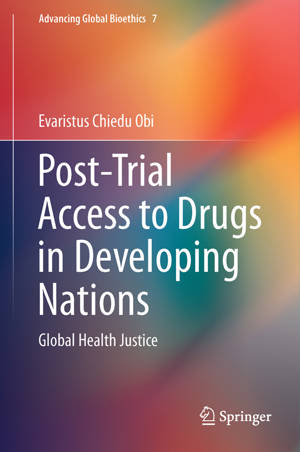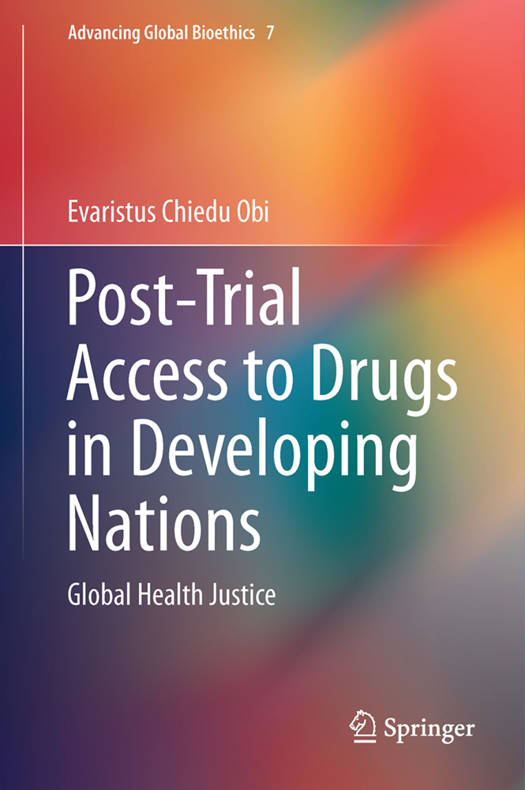
- Afhalen na 1 uur in een winkel met voorraad
- Gratis thuislevering in België vanaf € 30
- Ruim aanbod met 7 miljoen producten
- Afhalen na 1 uur in een winkel met voorraad
- Gratis thuislevering in België vanaf € 30
- Ruim aanbod met 7 miljoen producten
Omschrijving
This book begins the discourse on post-trial access to drugs in developing countries. Underlying ethical issues in global health inequalities and global health research serve as the context of the debate. Due to rampant allegations of violations of rights of research participants, especially in developing countries, it discusses the regulatory infrastructure and ethical oversight of international clinical research, thus emphasizing the priority of safeguarding the rights of research participants and host populations as desiderata in conducting clinical trials in developing countries. This is the first book that analyzes the major obstacles of affordable access to drugs in developing countries - patent and non-patent factors and how they can be overcome through a middle ground approach and a new paradigm to establish global health justice which includes national and global health responsibilities. The book also deals extensively with all complex aspects of the discourse on affordableaccess to drugs in developing countries, including intellectual property law, international regulations, political and cultural systems, international trade agreements. Furthermore it contains a robust ethical debate and in-depth analysis. The book crafts a paradigm of global health justice involving a sliding scale of national and global responsibilities for the realization of the right to health in general and access to drugs in particular.
Specificaties
Betrokkenen
- Auteur(s):
- Uitgeverij:
Inhoud
- Aantal bladzijden:
- 307
- Taal:
- Engels
- Reeks:
- Reeksnummer:
- nr. 7
Eigenschappen
- Productcode (EAN):
- 9783319600260
- Verschijningsdatum:
- 4/08/2017
- Uitvoering:
- Hardcover
- Formaat:
- Genaaid
- Afmetingen:
- 156 mm x 234 mm
- Gewicht:
- 625 g

Alleen bij Standaard Boekhandel
Beoordelingen
We publiceren alleen reviews die voldoen aan de voorwaarden voor reviews. Bekijk onze voorwaarden voor reviews.









